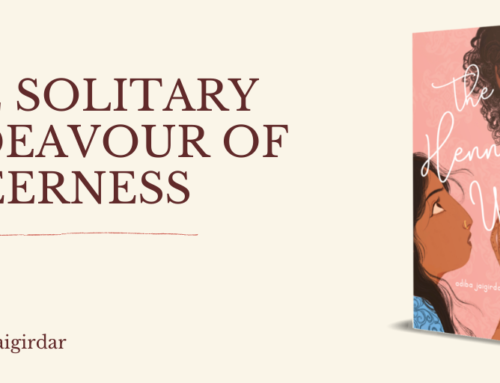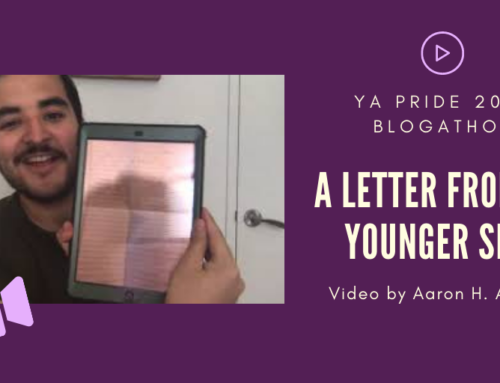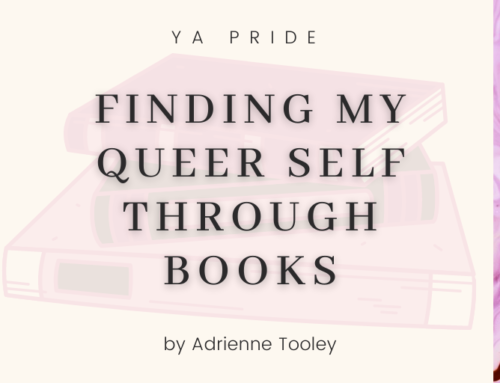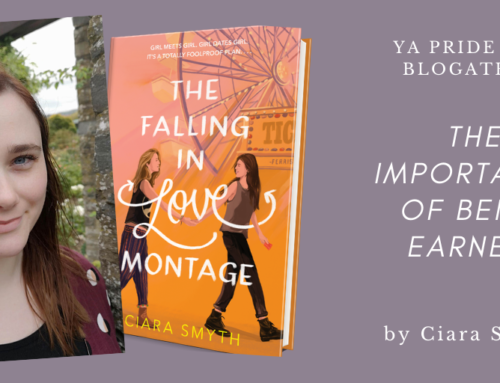Pride Month Blogathon: Day 9 – Introduction to Pride Month Blogathon
by L.D. Lewis
It’s 2017 and the world is on fire. Whatever day it is you’re reading this, you probably woke up lost and groaning. Maybe while staring at the ceiling or at nothing in particular in the mirror, you idly pondered what sort of distant, existential crisis would manifest itself in a very real threat to your being today and if/how you would react to it. Survive it. After all, yesterday
Disclaimer: I am no good at stringing together words of comfort. Even my silver linings require a somewhat grumpy sense of humor to really enjoy. I despise the nonsense platitudes that have persisted for generations under the guise of being inspirational. Words, after all, mean things. Among them is my least favorite:
That which doesn’t kill us makes us stronger.
Unless it doesn’t. If we are fortunate, our trauma leaves us with the tools to overcome greater harm in the future. But I can think of a dozen ways in which what doesn’t kill us may leave us debilitatingly fearful or fractured. The world as it stands today, yesterday, and tomorrow as far as I can tell, is doing its best to break a good many of us with some new struggle everyday. Our thresholds for what it means to “break” are varied and often bolstered by the time we are allowed to heal between the trials and assaults we experience. Sometimes there isn’t enough.
Summer 2016 nearly broke me. I don’t remember my process for recovering mentally from Pulse here in Orlando. My first mass casualty event as a first responder and it was an attack on my queer family. Twenty-four days later, unarmed Black man Alton Sterling was killed by police in Baton Rouge. On the twenty-fifth day, unarmed Black man Philando Castile was killed by police in Minnesota. And I am Black. The twenty-sixth day was my birthday. I could have taken the day off but I was terrified by the thought of another unarmed Black person dying at the hands of the cops I worked alongside while I was home licking my wounds and unable to intervene.
A few years ago, I picked up Nassir Ghaemi’s A First-Rate Madness, which explores the links between mental illness and successful (read: effective to their own ends, not necessarily moral) leadership through profiles of political figures and the like. I live with Bipolar Disorder, and it intrigued me because although I am a creative, the correlation wasn’t between mental illness and creatives for once. Among the examined figures were Napoleon, Lincoln, Churchill, Gandhi, Martin Luther King, Jr., JFK, and others. The premise is a nuanced one, of course, and requires quite a bit of supplemental reading in order to confidently establish a correlation between success and illness one way or another. And who knows how different leaders would have addressed different crises if influenced by different/the absence of diagnoses or dropped into a different place in time, so on and so forth.
The question of who we are more inclined to follow in a crisis — someone who has been through something, who has met with struggle and prevailed, or someone who has never known adversity — is answered by our daily lives. How we handle stress determines our qualifications for jobs; the question finding its way onto employment applications. It determines how equipped we are to be leaders of movements and communities. In my reading, I got to view the illnesses of these leaders as quiet traumas, things that had to be overcome on personal levels in order to make them effective. I drew parallels to my marginalizations — the things I have had to embrace and simultaneously survive — and where I might similarly have more of myself to offer.
Calling up Trump’s, uh, sudden and vexing insertion into the White House, communities of color were less surprised than nonplussed white citizens. We did, however, watch as white liberal friends, colleagues, and neighbors scrambled for some semblance of sense behind what was happening after living lives of relative comfort for, in some cases generations longer than PoC groups. An SNL skit starring Dave Chappelle and Chris Rock even parodied the real-life division in our reactions. The reason? Well, PoC (in this case Black folks) are used to a certain level of disappointment, of struggling beneath oppressive governing and institutional bodies regardless of who is in office. The election was a symptom of a reality we’ve always lived. We could roll right into protest and protection measures from what would undoubtedly be escalated abuses against our communities. We were immediately equipped to answer the pressing questions of what’s next? How do we fight this?
The same is true for the LGBTQIA+ peoples. By virtue of being born into a society unequipped or unwilling to protect and defend your humanity, you (the young) are quietly, naturally operating at a heightened state of awareness. It may not feel like it at any given time, but you have a particular set of skills those with the privilege of not needing to insist on their own survival may come to rely on, though you will need to look to your elders to learn how to use them. It’s people within our intersections and with more marginalizations than we possess who have the most to teach.
I am a queer Black woman of young-auntie age and experience. I am grown and I will still never learn more about my strength, its applications, and its immortal depth than I will learn from older queer Black women and femmes. These are people who have been able to create the joy to keep surviving in a burning world. It is their experiences that make me stronger.
As queer kids you have different struggles, sure. Your battle scars are borne differently and are caused by different experiences than were had by preceding generations. But the surviving elders of every marginalized community have fought more battles, endured more brutality, more abuses, than their descendants can imagine most days. And they’ve developed the thicker skin and mental and emotional faculties to combat the dangers resurfacing today.
The world is not now the best it’s ever been or better than it ever will be. That’s the nature of progress. But do try to remember that it has been on fire before and that we live among quiet legends with oral histories of greater infernos. Here is where I would clumsily invoke Sir Isaac Newton’s “on the shoulders of giants.” But as you may recall, I’m not much a fan of platitudes.
—
 L.D. Lewis is a coffee enthusiast and writes mostly novel-length fantasy with a particular enthusiasm for villains (who also drink coffee). She is an ASL teacher and medic in Florida. Her essays “On Walking My Fault Lines”, “Incidents at the Intersection of Black Mental Health,” and “Things I Learned from Nina Simone” are featured on BlackGirlNerds.com. You can find her novelette CHESIRAH in the inaugural issue of FIYAH. Follow her on Tumblr and Twitter @Ellethevillain.
L.D. Lewis is a coffee enthusiast and writes mostly novel-length fantasy with a particular enthusiasm for villains (who also drink coffee). She is an ASL teacher and medic in Florida. Her essays “On Walking My Fault Lines”, “Incidents at the Intersection of Black Mental Health,” and “Things I Learned from Nina Simone” are featured on BlackGirlNerds.com. You can find her novelette CHESIRAH in the inaugural issue of FIYAH. Follow her on Tumblr and Twitter @Ellethevillain.




